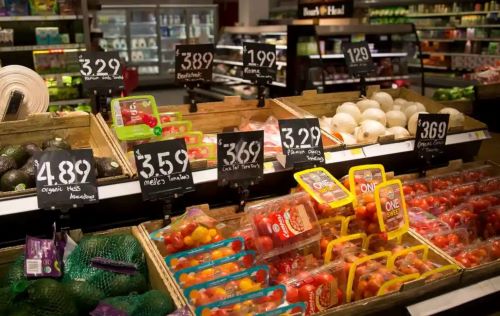How to Rebuild Economic Castles Swept Away by Inflation Waves

The current global economic downturn is characterized by volatility and uncertainty. Global inflation is one of the most apparent factors that plagues nations across the world, paralyzing the global economic system and impacting each country and eventually, the lives of its people. The key factors for the global economic crisis are the COVID-19 pandemic and the Russia-Ukraine war, which have caused interruptions in energy and food supply chains. The Chonnam Tribune examined anti-inflationary measures that other countries have taken based on news reports by the foreign press, and looked into how South Korea has battled inflation.
The Future Is Uncertain
The U.S. seems to have reached an inflection point on inflation, according to The New York Times released on Jan. 23. After the period of fluctuation due to COVID-19 and the Russian-Ukraine war, people across the country are experiencing some relief from a rise in living costs, but what will happen next is uncertain. The reason for that is because the speed and scope of the inflation cooldown will inform how high Federal Reserve policymakers raise rates and how long they leave them elevated. As of January, central bankers expect to raise interest rates slightly more and hold them at a high level throughout 2023. Along with controlling interest rates, the U.S. is prepared to execute the Inflation Reduction Act (IRA), a law to increase investment in local production technology. This will have a great influence on the economies of other countries.
The U.K. inflation is expected to cool and get back to the Bank of England’s two percent by the end of this year, helped by the decline in the global energy prices, according to the report of The Guardian on Feb. 12. European countries have suffered tremendously from energy inflation as the energy supply network has been severely interrupted since Russia’s invasion of Ukraine. Recently, inflation is falling, but it may not directly lead to an improvement of consumers' overall lives. Hiring demand from employers will dwindle, and the impact of Biden’s IRA impact is also difficult to overlook. Europe is currently looking at international trends and seeking directions to avoid economic stagnation, while continuing its policies to stabilize the energy industry, such as extending the energy supply chain, and investing in the renewable energy industry.
The Economic Turmoil Is Persisting
China's economy has begun to recover, and inflation would accelerate for a while as the country abruptly dismantled its zero-tolerance Covid-19 measures, The Wall Street Journal reported on January 12. The zero-Covid policy, followed for approximately three years, caused tremendous economic devastation in the country. Economists expect the end of strict restrictions will push up inflation worldwide as well as in the country. China’s reopening would affect the world by keeping up the pressure on global prices. Particularly, extra demand for oil and natural gas would risk keeping energy prices higher for longer, especially in a world of tight supplies caused in part by the war.
Argentina’s consumer prices are seen rising by an annual rate of 97.6 percent in 2023, compared to last year's rate of 94.8 percent, according to the report of Reuters on February 15. The country has battled rising prices for years, suffering through a prolonged economic crisis, which is marked by a massive debt load, chronic deficit spending, and the steady erosion of the local peso currency. Argentines live with one of the world's highest inflation rates, second only to Venezuela in Latin America. Despite the government's urgent actions, such as raising interest rates to counter the sky-high inflation, analysts anticipate it will be difficult to stabilize the economy.
South Korea: Inflation Likely to Continue
South Korea is also not immune to global inflation, just like the countries mentioned above, but the expectation is that its inflation is going to persist in the coming years. Korean economy's "inflation-importing structure" — disruptions in the global supply chain directly affect the country’s economy — has caused a huge variation in prices of products ranging from energy to daily commodities. It is clear that the US IRA has a significant impact on the country’s economy, besides, it is impossible to forecast the impact of China's loosening of economic policies on South Korea. Therefore, it is critical how South Korea, which lies between the two conflicting forces, respond to the U.S.–China rivalry.
The government is trying to break through this complex crisis through institutional reforms that are focused on freedom in individual business and the principles of a market economy. However, the response has not been effective so far. In this circumstance, the government must take new measures: Domestically, further efforts are needed to develop local industry so that it does not collapse severely in the face of external situations. Internationally, it is critical to lessen reliance on certain nations and to expand the commerce network. In order to achieve these goals, the government needs to actively implement effective policies rather than expect a virtuous cycle between factors. South Korea has no choice but to brace itself for a situation in which "with-inflation" will be accepted as the new normal.
By Song Su-min, Reporter

